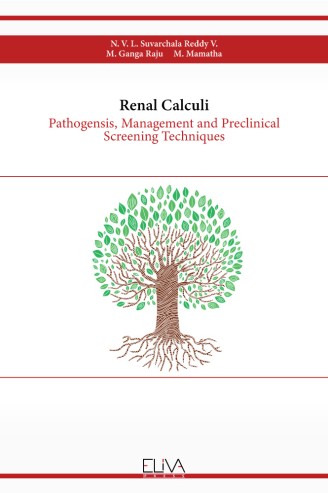
Renal Calculi: Pathogensis, Management and Preclinical Screening Techniques
$ 38.5
Description
Renal calculi are a common cause of blood in the urine (hematuria) and pain in the abdomen, flank, or groin. They occur in one in 11 people at some time in their lifetimes with men affected 2 to 1 over women. Development of the stones is related to decreased urine volume or increased excretion of stone-forming components such as calcium, oxalate, uric acid, cystine, xanthine, and phosphate. Calculi may also be caused by low urinary citrate levels or excessive urinary acidity. Renal calculi present with excruciating pain and most patients present to the emergency department in agony. A single event does not cause kidney failure but recurrent renal calculi can damage the tubular epithelial cells, which can lead to functional loss of the renal parenchyma. Urolithiasis is a common urological disorder responsible for serious human affliction and cost to society with a high recurrence rate. The aim of the present study was to systematically evaluate the leaf extract of Citrus medica using suitable in-vitro and in-vivo models to provide scientific evidence for its antilithiatic activity. Cystone has been suggested to be beneficial in urolithiasis, as it corrects the crystalloid, colloid stability. It is evaluated that flavonoids, triterpenoids and saponins from different plants resulted in the antilithiatic activity. To explore the effect of Citrus medica on sodium oxalate crystallization, in-vitro assays like crystal nucleation and aggregation were performed. The biochemical parameters like calcium, oxalate, magnesium, phosphate, sodium, and potassium were evaluated in urine, serum, and kidney homogenates were evaluated.



